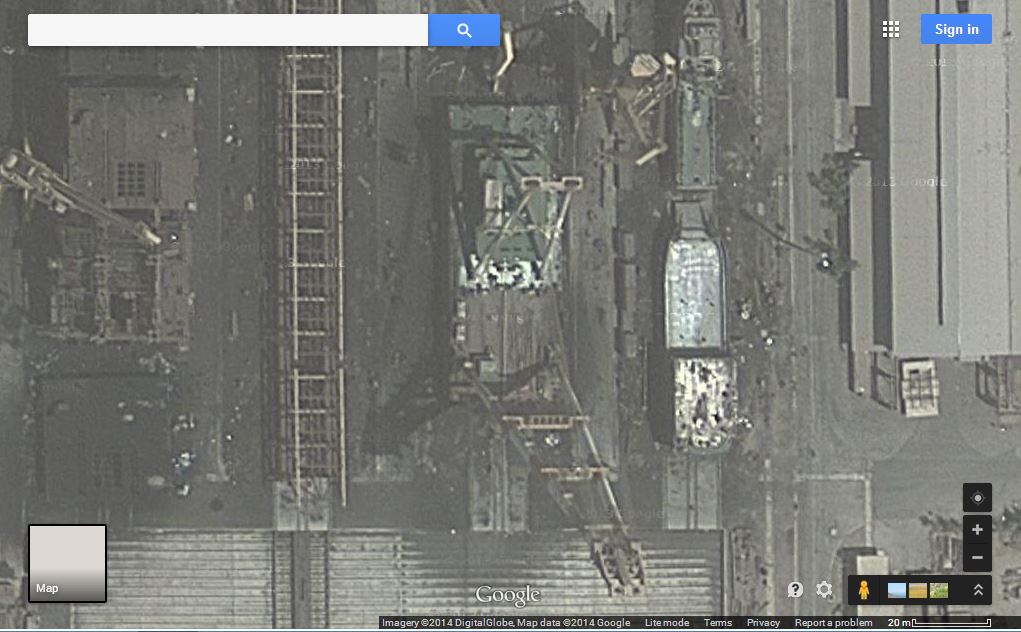1 The Long War Journal: Al Qaeda official in Syria was extremist preacher in Australia
Written by Thomas Joscelyn on March 21, 2014 10:07 AM to 1 The Long War Journal
Available online at:
An extremist preacher known for his fiery sermons in Australia, where he implored listeners to join the jihad in Syria, is now a leader in the Al Nusrah Front. The cleric, known as Abu Sulayman al Muhajir (or Abu Sulayman "the emigrant"), was introduced by the Al Nusrah Front as one of the group's top sharia officials in a video released on March 17.
The Al Nusrah Front, al Qaeda's official branch inside Syria, released the video as part of its propaganda campaign against the Islamic State of Iraq and the Sham (ISIS), which was disowned by al Qaeda's senior leadership earlier this year.
Abu Sulayman says in the video that he was tasked with trying to resolve the conflict between Al Nusrah and ISIS. Al Qaeda's senior leadership dispatched a number of highly respected jihadist ideologues to Syria to resolve the dispute last year. And Abu Sulayman's video confirms that he was among them.
Other known al Qaeda operatives who were involved in the failed reconciliation effort include Abu Khalid al Suri (al Qaeda's chief representative in Syria, who was killed in a suicide bombing on Feb. 23), Sanafi al Nasr (who heads al Qaeda's "Victory Committee," which is in charge of the group's strategic planning and policy), and Abu Firas al Suri (an al Qaeda veteran who once served as Osama bin Laden's "envoy" to Pakistani jihadist groups). It appears that a popular Saudi cleric named Dr. Abdallah Muhammad al Muhaysini was among these al Qaeda representatives sent to Syria as well.
Abu Sulayman says in the video that he decided to speak out only after an ISIS official known as Abu Muhammad al Adnani released a blistering critique of Abu Abdallah al Shami, an Al Nusrah Front official. This echoes the testimony of Abu Firas al Suri, who made the same claim in a video released by the Al Nusrah Front the following day, on March 18.
Criticizes ISIS
Abu Sulayman's testimony focuses on key aspects of the infighting.
First, and foremost, he rebuts the claim made by ISIS supporters that Abu Bakr al Baghdadi did not swear a formal bayat (oath of loyalty) to Ayman al Zawahiri. ISIS advances this claim in order to avoid the obvious implication that al Baghdadi is in the wrong for failing to follow orders. And Al Nusrah argues the opposite, that al Baghdadi is insubordinate because he has failed to abide by his pledge of bayat to Zawahiri.
Abu Sulayman says that ISIS "accepted" him as a mediator in conflict with Al Nusrah. But some within ISIS began to claim that al Baghdadi's oath was not a "full" bayat and instead a bayat for "love and support" only. Abu Sulayman says that he does not know what sort of bayat ISIS "was speaking about."
So, he brought the matter up with al Baghdadi.
"I seek refuge in Allah, I have a true binding bayat to Sheikh Ayman, to hear and obey, in hardship and in ease!" al Baghdadi responded, according to Abu Sulayman's testimony.
This, according to the Abu Sulayman, "affirmed to us what we already know, that [al Baghdadi] is a soldier in the command of al Qaeda and that he listens and obeys like the other [leaders] of other regions."
Al Baghdadi's willingness, at first, to abide by Ayman al Zawahiri's orders shows that he was an al Qaeda soldier, Abu Sulayman says. The cleric recounts an episode from his "first mediation" attempt, when al Baghdadi allegedly said: "If Sheikh Ayman commanded me to assign the issue of Sham [the Levant] to someone else I would do so."
ISIS even rejected the proposal that a common sharia court resolve the group's issues with Al Nusrah, Abu Sulayman claims, because ISIS said it was "waiting for the response of Sheikh Ayman."
Abu Sulayman's claims ring true, at least in part. After the dispute between Al Nusrah and ISIS became public in early April 2013, Ayman al Zawahiri sent a letter to both parties demanding that they account for their actions. Both sides complied, as can be seen in a subsequent letter from Zawahiri dated May 23, 2013, which was leaked to Al Jazeera.
In his letter, Zawahiri references the fact that he received reports from both al Baghdadi and Abu Muhammad al Julani, Al Nusrah Front's emir. Zawahiri then says that he consulted with al Qaeda's Shura council to determine his ruling. This shows, at a minimum, that ISIS' leaders were willing to submit to Zawahiri's arbitration process, which would be unusual if al Baghdadi and ISIS were not nominally under Zawahiri's command.
The March 17 Al Nusrah Front video even concludes with audio from Zawahiri reading from the parts of his May 2013 letter that deal with the written reports that were sent to him, thereby underscoring the fact that ISIS submitted itself to al Qaeda's bureaucratic process.
Zawahiri ruled that Al Nusrah and ISIS should remain separate entities (ISIS had tried to subsume control of Al Nusrah) and ISIS should decamp for Iraq. Al Baghdadi was not about to abide by this decision, however. After Zawahiri's ruling became public in June 2013, al Baghdadi openly defied Zawahiri's orders in an audio message released online.
Beyond the claims regarding ISIS' one-time loyalty to al Qaeda, Abu Sulayman also criticizes ISIS' "extremism," saying that ISIS had threatened to kill one of Al Nusrah's top officials without offering any sound Islamic justifications.
In sum, Abu Sulayman seeks to undermine ISIS' religious credentials, mocking the fact that some within ISIS "deprecate" Zawahiri's "judgment" when they themselves are supposedly bereft of sound reasoning.
Abu Sulayman concludes his testimony by endorsing Shaykh Abu Abdullah al Shami, the Al Nusrah Front ideologue who has been openly engaged in a war of words with ISIS.
Known for his extremism in Australia
While the Al Nusrah Front video is propaganda, it offers outsiders an additional window into how al Qaeda's international network operates. The aforementioned senior al Qaeda ideologues and operatives identified above were not known to play such a prominent role in Syria until the infighting between the Al Nusrah Front and ISIS exposed them.
As a result of ISIS' effective online attacks, Al Nusrah has been forced to expose the identities of some of its most seasoned personnel, some of whom were dispatched to Syria by al Qaeda's senior leadership. While previous reports identified Abu Sulayman as an Al Nusrah Front official in Raqqah province who was expelled by ISIS, little was known about his role in al Qaeda's mediation efforts.
Abu Sulayman does not hide his allegiance to al Qaeda. On his own Twitter feed, which currently has nearly 7,000 followers, Abu Sulayman decribes himself as a member of "Al Qaeda in the Levant."
Prior to migrating to Syria, Abu Sulayman was well-known for his jihadist recruiting efforts in Australia.
Along with other radical clerics, Abu Sulayman preached at the Al Risalah bookstore and community center in Sydney. The bookstore was closed by authorities there late last year.
"We're calling day and night for us to support them with our wealth and with our blood and with whatever we possess," Abu Sulayman said during a lecture in 2012, which was shown on television by the Australian Broadcasting Corporation (ABC) in December 2013. Abu Sulayman's lecture was devoted to supporting the jihad in Syria.
Abu Sulayman told those in his audience that they are obligated to join the jihad in Syria if they can, and they should give "generous donations" to the "mujahideen" in Syria.
Another account by ABC identified one of Abu Sulayman's colleagues at Al Risalah as a jailed preacher named Bilal Khazal. ABC reported that Khazal was a one-time "a confidant of Osama bin Laden" and said he had "trained at a military camp in Afghanistan."
According to Australian press accounts, a significant number of Al Risalah's recruits are suspected of traveling to Syria to fight for the Al Nusrah Front.
Abu Sulayman has joined them.
*Note: The Al Nusrah Front released Abu Sulayman's video in Arabic, as well as a transcript of the video in English.




